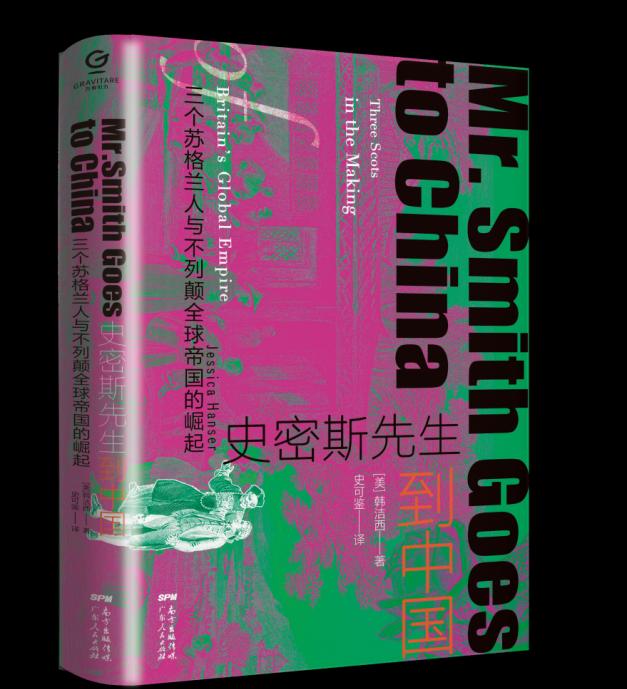Cover news reporter Wang Hui
Through the East India Company's treasury in Guangzhou, George Smith of Guangzhou helped his clients remit private assets from India to Britain. In the process, he also helped maintain the company's tea trade in China, ensuring that the company had enough silver in Guangzhou to pay for seasonal tea purchases. However, if Smith of Guangzhou had done all that, he would not have appeared so frequently in the archives of the East India Company as a free merchant who had broken into the company's trading territory..."

Who is Smith in Guangzhou? How did he come to China from Great Britain? What else does he do in addition to the above activities? Guangdong People's Publishing House's new book " Mr. Smith to China " tells how three Scottish "Smiths" stirred up Anglo-Asian commercial trade more than 200 years ago.
The book proposes a new interpretation of Macartney's visit to China and even the origins of the Sino-British Opium War, and challenges the traditional Asian maritime trade narrative dominated by the British and Dutch East India Companies, organically combining global history and micro history through a large number of archival historical materials in multiple countries and languages.
The book tells such a dusty past.
In the second half of the 18th century, spurred on by Adam Smith's "free trade" economic ideas, three Scottish merchants of the same name, "George Smith", lured by high profits, bypassed the monopoly trade of the East India Company and set off a commercial storm in the Indian Ocean, which eventually caused a financial crisis, and the inherent instability of the financial credit system eventually triggered the invasion and colonization of Asia by the British Empire.
Through the three Mr. Smiths and the "loose merchants" group represented, this book shows the inner workings of the British Empire's global expansion and the formation of a global trade network. With their own business activities, they filled the financial gap in the East India Company's trade in Asia, maintained close ties with the political elite in London, and even through this political connection, transformed their trade needs in the Far East into the country's political agenda, promoting the completion of Britain's first mission to China and laying the groundwork for the Opium War.
According to The Historical Review, this book is an original study of the imperialist expansion of 18th-century Britain, as well as an impressive socio-historical work, breaking down the narrative/analysis, social/political and micro/macro dichotomy and showing the change in the British perception of China in the 18th century.
Ouyang Tai, author of "From Elixir to Gun", said that in this impressive book, the author opened a new window into the study of British overseas trade, full of fascinating details, telling the true story of three Scotsmen, all named George Smith, and using their experiences to inject new vitality into eighteenth-century imperialism, cross-cultural trade and global finance.
<b>[If you have a news thread, please report to us, once adopted, there is a fee reward.] Newspaper WeChat attention: ihxdsb, newspaper QQ: 3386405712].</b>